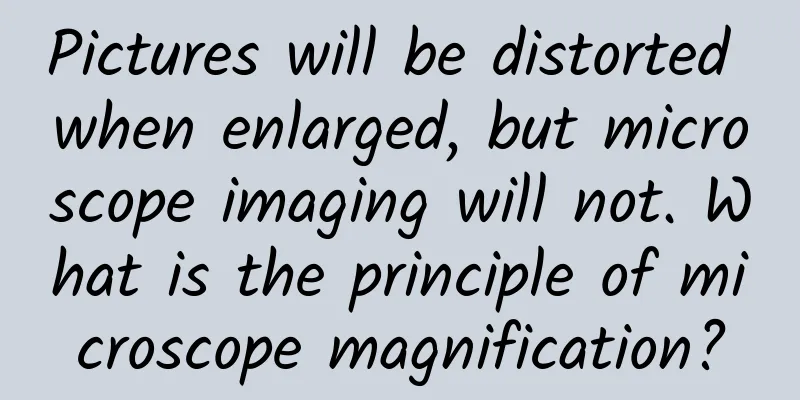After reading "Offline", review "1024"

|
Let’s first look at a clip recorded in Digital Utopia: In 1972, Brand and Rolling Stone photographer Annie Liebowitz sneaked into Stanford University's artificial intelligence laboratory, gathered a group of programmers and researchers, and held an "Interstellar Space War Olympics." Graduate students with long hair gathered around a PDP-10 time-sharing computer, typing commands to build small triangular spaceships on the computer screen and bomb each other. Brand not only recorded these program instructions in his story, but also described the excitement and joy of these players. He immediately used these joys as a testament to the power of the counterculture, the space war game, the computer, and the cultural atmosphere of freedom and cooperation around them. However, when faced with new things like electronic games, the Chinese people’s attitude is first fear and suppression, which is “electronic heroin” and “the war on Internet addiction”. But fear and suppression cannot invent personal computers and the Internet. The creation of games such as “Space Wars” and “Life” relies on a more open and inclusive cultural atmosphere and social attitude, so they will be told as the legendary stories of hackers written by Steven Levy. Today’s gaming industry encompasses almost everything. In 1975, when Woz used 45 chips to make the Breakout game for Steve Jobs, “making games was barely a job”; but today, even playing games can be considered a popular profession. The historical and cultural heritage of this industry is outlined in a few articles in the “Starting the Game” section: starting with an excerpt from “Finite and Infinite Games”, from Sims “God” Will Wright to the perfect Pac-Man player, from Nintendo’s console battlefield to the evolution of controller design, and of course the game spirit and game failure theory in the eyes of researchers. Then I have to say that the arrangement and design of the two illustrations of the game controller are quite good. The posters and postcards are definitely worth the price of the book^.^ The starting point of arcade games was Pong in 1972. Pac-Man was an arcade game released by Namco in 1980. It was not until July 3, 1999 that Billy Mitchell achieved a perfect record of 3333360 points. Perfection is based on the strict requirements for details, "focused practice" and self-polishing, and the complete analysis and mastery of the game form, programming rules and their purposes. Billy said this can be regarded as a metaphor for his life - "Pac-Man changed the tone of my life, including my career, family, emotions and everything. Since creating the perfect record of this game, I have become demanding of perfection in everything." Unfortunately, "Start Gaming" mainly focuses on arcade and console games, which may seem a bit outdated to current PC and online gamers. Of course, the topic of PC games and e-sports is enough to be discussed in a whole special topic: John Carmack, the graphics card revolution, id Software, Blizzard, Vavle, Voodoo, Oculus Rift... In terms of e-sports, there are QuakeCon, WCG, and this year's DOTA2 crowdfunding of up to 10.93 million US dollars in prize pools, as well as research projects on virtual economics and sociology in World of Warcraft, etc. Of course, this kind of culture should indeed be something that can be left after a long period of sedimentation. Finally, after reading this book, I felt that I was still not satisfied. This may be because there are too many game-related topics. I hope that there will be another book on game topics in the future. In addition, from "1024" to "Offline", I began to see a path to the entire field of science and technology culture in the Chinese world: like the original "Wired" magazine and "Global Overview", to bring a feast of science and technology and humanities to Chinese readers. This is also my ultimate expectation for a MOOK with this theme. Of course, translating and editing these contents are hard work. In response to such an expectation, I would like to add a few words about my understanding of content organization. To sum up, the efforts and improvements made in this book deserve recognition, and I hope you will continue to work hard! As a winner of Toutiao's Qingyun Plan and Baijiahao's Bai+ Plan, the 2019 Baidu Digital Author of the Year, the Baijiahao's Most Popular Author in the Technology Field, the 2019 Sogou Technology and Culture Author, and the 2021 Baijiahao Quarterly Influential Creator, he has won many awards, including the 2013 Sohu Best Industry Media Person, the 2015 China New Media Entrepreneurship Competition Beijing Third Place, the 2015 Guangmang Experience Award, the 2015 China New Media Entrepreneurship Competition Finals Third Place, and the 2018 Baidu Dynamic Annual Powerful Celebrity. |
<<: The Heart of Craftsmanship
Recommend
The new Audi A6L is coming to grab the market share. Are Mercedes-Benz and BMW ready?
According to overseas media reports, the new gene...
Science: Breakthrough in sleep medicine: The brain consolidates positive emotions in dreams
Processing emotions, especially distinguishing da...
How much does it cost to be an agent of Chuxiong Transportation Mini Program?
How much does it cost to be a Chuxiong agent for ...
Photovoltaic power stations float on the ocean. Will we rely on the sea for food in the future?
Can solar panels only be laid on land? No! They c...
Tencent Social Advertising Getting Started Guide
Recently, many of my friends who have transformed...
Is the Sun really a giant hydrogen bomb? Where does its energy come from?
When it comes to the sun, everyone is familiar wi...
The interface is cleaner! Android QQ 8.8.11 is released: a new simple mode is here
Tencent today released the latest official versio...
WeChat launches new feature, "provoking" the three major operators, netizens: overestimating their capabilities
In today's mobile Internet era, the "cei...
How to do content marketing on Zhihu?
At present, Zhihu is the platform that can best s...
There is another version of the user interface for iOS 8?
Apple believes that they should tell consumers wha...
14 PPTs let you master all promotion channels and their characteristics!
Mobile application product promotion services: AS...
How did Panda Mini Class gain nearly one million fans through fission?
Knowledge payment has been very popular in recent...
360 information flow advertising operation manual!
Compared with Toutiao ads, Baidu information flow...
With current human science and technology, can we completely destroy the earth?
This article is based on answering similar questi...
Low blood pressure is common among women. Does it have any impact on health? What should we do?
A friend asked Huazi why he always talked about h...









